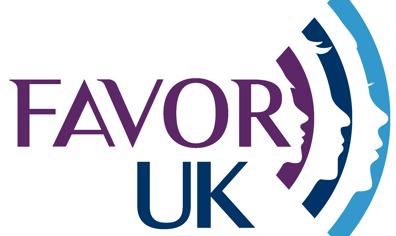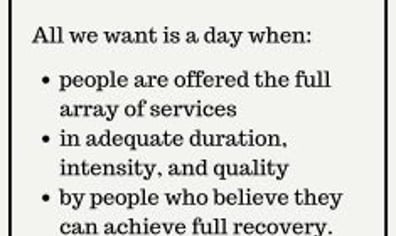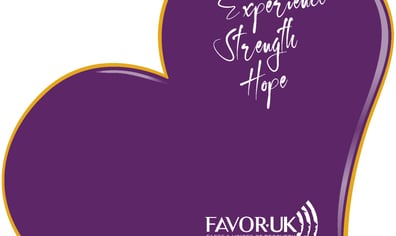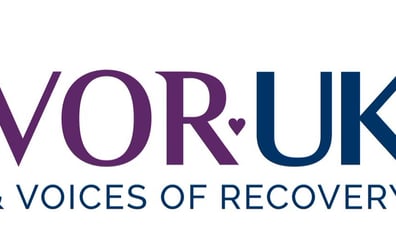About us
Who we are
WHO ARE WE?
We are a UK-wide based human rights advocacy case worker service led by people with living and lived experience of alcohol and other drugs representing the voices of communities affected by addiction. We are a UK wide membership organisation with over 5000 members. We are also a leading campaigning voice for better access and treatment choices for those seeking help with addiction . We are led, developed, managed & sustained by lived experience professionals.
WHAT WE DO
ADVOCATE
We empower people through education, providing them with the knowledge and tools they need to ensure they are aware of their own rights and have the confidence to voice them.
CAMPAIGN
We challenge public policy in order to remove obstacles and promote equitable access to treatment systems and options.
CHALLENGE STIGMA
We call out stigma and promote equality for people with living and lived experience of alcohol and other drugs.
OUR AIMS
To save and improve the lives of people affected by alcohol and other drugs by providing a voice of conscience.
To encourage and promote a more balanced investment into treatment services by public bodies and other funders.
Increase society’s understanding of the links between trauma and the use of alcohol and other drugs, promoting the values of patience, understanding and empathy.
To influence and shape public policy, removing the tokenism around the way that the voices of living and lived experiences are heard.
To celebrate and promote a culture of hope through our annual national recovery walk, inviting communities to walk with us through towns and cities across the UK.
BACKGROUND PURPOSE AND AIMS
FAVOR UK (Faces and voices of recovery UK) started life in 2009 with the primary aim of connecting people with living and lived experience of addictions to alcohol and other drugs.
We did this through our well-known and respected National Recovery Walks which took place in towns and cities across the UK. These walks gave our communities the strength in numbers to walk together and be open about our experiences with substances, and to show wider communities that we were ordinary people – breaking down the stereotypes and stigma that normally surrounds us. We officially registered as a charity in 2012, taking pains to recruit a board of trustees with their own lived experiences in order that the concept of ‘lived experience leadership’ remained at the heart of what we do. We recruited a CEO with the passion, drive and eloquence that we needed to spearhead what we wanted to achieve. For those who have met Annemarie Ward or heard her speak, you will no doubt agree that although our charity is small, our voices are not.
The 2020 pandemic had an obvious impact on our activities – forcing us to postpone our recovery walks in 2020/21. One thing we did not want to do is sit and wait it out. We came together as a board and considered what else we could do – where else were we needed? The pandemic gave us time to reflect on our aims and to re-evaluate the direction of the charity.
Together we considered the current UK landscape for people with addictions and reflected on what we were seeing and hearing over the last few years:
- Increasing numbers of people were still dying from preventable overdoses.
- Individuals and family members were reporting inequitable opportunities accessing residential treatment. There appeared to be a post-code lottery with some local authorities investing more than others.
- People were unaware of their rights to publicly funded drug and alcohol treatment, and had no independent advocacy when they needed it.
- There wasn’t enough investment in the treatment for trauma – often one of the underlying reasons for problematic substance use.
- We saw an unacceptable level of stigma around people with living and lived experiences in workplaces and in the mainstream media. Unhelpful and discriminatory language and labels were still being used with impunity.
- We heard that the voices of living and lived experiences were sometimes cherry-picked, and that not everyone was invited to the table.
In April 2021, led by our energetic CEO Annemarie Ward, we re-visited our aims, and made the decision to re-focus our energies on our campaigning and advocacy activities, whilst still retaining some of our core activities like our National Recovery Walk.
We are going to be brave and outspoken – calling out social injustice and encouraging our communities to speak out for themselves. We will become a vehicle for the voice of conscience, holding people to account for what we believe is right. We will continue to develop campaigns such as #Youkeeptalkingwekeepdying – reminding society that deaths from overdose are preventable and leave behind decimated families and communities.
We are excited to reveal our revised purpose and set of aims that will give our charity the foundation from which to develop our activities in 2021 and beyond.
HOW WE DO IT
ADVOCATE
Our advocacy caseworker project focuses on the identification of local issues facing people seeking access to drug and alcohol treatment in their locale and, through involvement and wider consultation, co-produces the design and delivery of a local response to tackle those issues through support and advocacy. The focus is on the practical impact and empowerment of people with entrenched addiction issues; untapping expert lived experience to deliver more informed and enriched services.
Our programmes of active and assertive outreach ensures that we reach people in the community at the services they are using & attempting to access. The approach taken by us recognises that the individuals we seek to engage with face more barriers already, so we go to them and whilst seeking to learn from their experiences and involve them in our work, we provide them with access to our support and advocacy workers. This approach aims to improve individual outcomes whilst learning about the wider societal and systemic changes that are required.
Our culture and values
We empower people through education, providing them with the knowledge and tools they need to ensure they are aware of their own rights and have the confidence to voice them.
CAMPAIGN
We challenge public policy in order to remove obstacles and promote equitable access to treatment systems and options. You can read about some of our campaign work by searching google using our name as there have been many press article written about our work. You can also search Youtube for the many movies made about the UK recovery walk which is the largest annual recovery gathering in Europe. You can also read about our latest campaign work here, & also by reading our news section.
FIGHTING THE STIGMA OF ADDICTION
- Willingness to attend treatment and access to healthcare.
- Harm reduction.
- Self-esteem and mental health.
You can see some short films made of our work challenging stigma here
We provide the addiction treatment and recovering community with practical information and tools to enhance their capacity to engage in effective stigma reduction efforts. We unify the recovery community around key priorities — to reduce stigma by ending discrimination against people in recovery. We are working to eliminate barriers to recovery for every UK citizen and every family, and to help today’s children and future generations, who often are the biggest winners in the process of recovery.
We facilitate a UK wide conversation for people in recovery, their friends, families and allies as well as those still suffering. We are committed to eliminating stigma, shaping public policy and educating people by bringing recovery into the public consciousness. We accomplish this through the promotion and celebration of recovery, by demonstrating recovery as a positive healing force, and by being the voice for those who have not yet found theirs. We support all pathways to recovery and we support initiatives such as Recovery Day, Rally for Recovery and Recovery Month.
We encourage those in recovery from addiction, and their friends, family members and allies to build awareness, challenge societal stigma, and celebrate the role that recovery plays in improving the lives of individuals, families, and communities.
RECOVERY SAVES LIVES
To find out how you get involved email us at
Equality, diversity and inclusion policy
The success of any organisation and that of its employees depends very largely on the employees themselves, and so we look to you to play your part as we shall continue to play ours. We provide equal opportunities and are committed to the principle of equality regardless of race, colour, ethnic origin, religious belief, political opinion or affiliation, sex, marital status, sexual orientation, gender reassignment, age or disability. We will apply employment policies that are fair, equitable and consistent with the skills and abilities of our employees and the needs of the business. We look to your support in implementing these policies to ensure that all employees are given equal opportunity for recruitment, training and promotion and, in all jobs of like work, on equal terms and conditions of employment. We will not condone any discriminatory act or attitude in the conduct of our business with the public or our employees. Acts of harassment or discrimination on the grounds of race, colour, ethnic or national origin, religious belief, political opinion or affiliation, sex, marital status, sexual orientation, gender reassignment, age or disability are disciplinary offences. We welcome you and express our sincere hope that you will be happy here in our team. We ask that you carefully study the contents of this Employee Handbook as, in addition to setting out our rules and regulations, it also contains a great deal of helpful information. Due to the sensitive nature of the business and in dealing with vulnerable adults, special attention and understanding is expected. FAVOR UK has zero-tolerance approach and does not condone any discriminatory act or behaviour deemed to be inappropriate during employment, especially in dealing with clients, suppliers, members of the public or fellow employees. Any unlawful discriminatory act or inappropriate behaviour will be dealt with through the disciplinary process.









